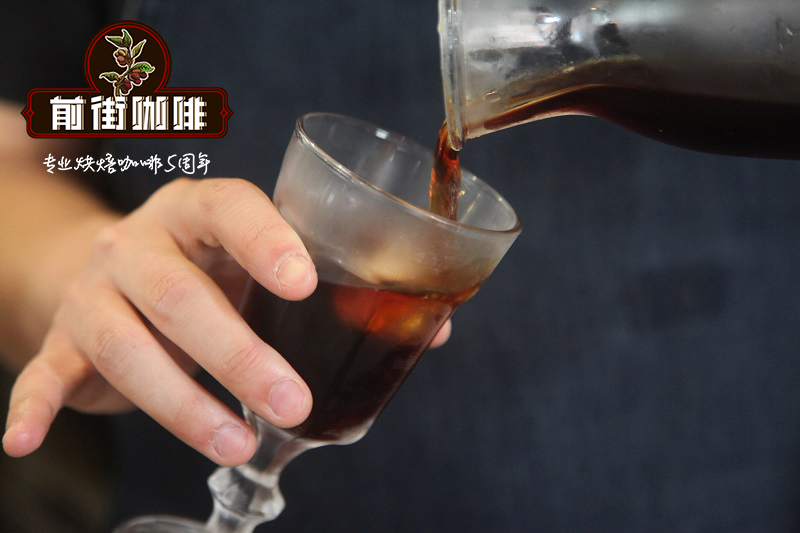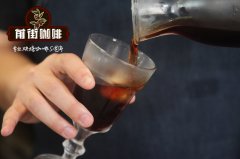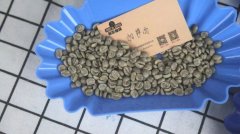What is the standard of Jamaican Blue Mountain Coffee? Real price list of Jamaican Blue Mountain Coffee

Professional coffee knowledge exchange more coffee bean information please follow the coffee workshop (Wechat official account cafe_style)
In recent years, the serious efforts made by the Government of Jamaica were mainly to increase coffee production and to build a central coffee processing plant to facilitate coffee treatment and raw bean grading, which did improve the quality, but not very successfully. Canada, the largest buyer of Jamaican coffee in 1943, still could not accept this quality. In 1944, the Jamaican government set up a central coffee [water] treatment plant, where all coffee to be exported had to be processed and graded, and the quality of Jamaican Blue Mountain coffee exported from Jamaica was getting better. The Jamaican Coffee Authority was established in June 1950 and the state is officially responsible for the quality of coffee beans for export. There are currently five government-certified 100% Jamaican Blue Mountain Coffee processing plants: Wallenford,Mavis Bank,Old Tavern Old Inn, Silver Hill,Moy Hall.
It is mentioned that Blue Mountain Coffee has the characteristics of all good coffee, not only full-bodied and mellow, but also because of the perfect combination of sweet, sour and bitter coffee, so it has no bitter taste at all, only moderate and perfect sour taste. It is generally drunk on a single product, but because the output is very small and the price is extremely expensive, it is generally made with coffee with a similar taste on the market.
So now, the annual harvest time of Jamaican Blue Mountain Coffee is from June to November, which is usually picked by hand. after picking, it goes through the process of washing, peeling, fermentation, dehydration, drying, shelling, baking, and so on. to get a ripe blue mountain coffee bean. In the process of raw bean processing, there are special personnel responsible for quality supervision in each step.
For the very precious Jamaican Blue Mountain Coffee, the packing and transportation mode adopted by the Jamaican government is also different. Unlike other coffees, Jamaican Blue Mountain Coffee is not packed in cloth bags at 60kg / bag, but is packed in wooden barrels at the standard of 70kg / barrel .
Jamaica is also the last country to still transport coffee in traditional wooden barrels. Jamaican Blue Mountain coffee beans must obtain a certificate of quality recognition issued by the Jamaican Coffee Industry Committee, which is the only body in Jamaica authorized to issue such a certificate. And each batch of export will have special quality supervision experts responsible for sampling, baking, grinding and brewing coffee, and finally make a judgment on whether to meet the standard. Because of its high price, Blue Mountain Coffee has a relatively fixed consumer group, and its market is mainly concentrated in Japan, followed by some European and American countries. Coffee beans are full in shape and slightly larger than ordinary beans. Its taste is very subtle, sour, fragrant, mellow, sweetness is uniform and strong, slightly bitter, harmonious taste, excellent flavor, suitable for individual coffee. It uses medium roasting (MediumRoast) to maximize the original taste of the coffee and enhance its aftertaste. With the improvement of coffee consumption in China, a large number of cafes begin to serve "Blue Mountain Coffee", and its price is often only a fraction or a tenth of that of authentic Blue Mountain coffee.
In 2005, under the guidance of Taiwan coffee merchants, a large number of Chinese media began to pay attention to and report the authenticity of Blue Mountain Coffee. So far, authentic Blue Mountain coffee is still out of reach of most Chinese consumers because of its price and supply in the mainland market. Blue Mountain Coffee can maintain its top status today, which is closely related to the local management policy. In 1932, Jamaica reduced the island's dependence on sugar exports through policies to encourage coffee production. Unlike most coffee-producing countries, the local government does not plant a large number of high-quality and poor-quality coffee in order to increase the output, but prefer to sacrifice the output to ensure the quality. Therefore, Jamaica is one of the countries with low coffee production in the world. Brazil, the world's largest coffee exporter, produces 30 million bags of coffee a year, while Blue Mountain produces only about 40, 000 bags a year. At present, there is rarely a blue mountain coffee bean in the "Blue Mountain style" coffee on the market. One kind of "Jamaican mixed Blue Mountain" coffee is a mixture of 30% Blue Mountain Coffee and 70% of the best Jamaican Alpine Coffee. The above two kinds of coffee try to imitate Blue Mountain Coffee, but can not achieve the perfect state.
Blue Mountain Coffee is "given the cold shoulder" in the United States, which has something to do with American habits.
Since the 1970s, seasoned coffee has gradually become a favorite. It is to add spices to coffee beans, or to add coffee companions to brewed coffee, flavoring hundreds of coffee. Seasoned coffee is mostly made from cheaper coffee beans. When Blue Mountain Coffee is usually $80 per pound, Maxwell Coffee costs only $3 per pound.
Important Notice :
前街咖啡 FrontStreet Coffee has moved to new addredd:
FrontStreet Coffee Address: 315,Donghua East Road,GuangZhou
Tel:020 38364473
- Prev

What is the annual output of Jamaican Blue Mountain Coffee? How to buy authentic Jamaica Blue Mountain Coffee?
For more information on coffee beans, please follow the coffee workshop (Wechat official account cafe_style). We have to first mention the managers of the Jamaica coffee industry board (CIB) coffee industry in Jamaica. Its establishment is of great significance to the coffee industry in Jamaica. It has set up the quality standards for Jamaican Blue Mountain Coffee, Alpine Coffee and
- Next

Comparison of coffee producing areas in Kenya | what is the difference between coffee in Neri, Muraya and Sika?
Coincidentally, I recently got a batch of beans from Kenya, they come from different producing areas of Kenya, so the flavor will be very different? We baked the oven separately for cup test and comparison, and today the editor would like to share the results of the comparison with you! | there are three production areas compared this time: Nyeri and Thika.
Related
- Detailed explanation of Jadeite planting Land in Panamanian Jadeite Manor introduction to the grading system of Jadeite competitive bidding, Red bid, Green bid and Rose Summer
- Story of Coffee planting in Brenka region of Costa Rica Stonehenge Manor anaerobic heavy honey treatment of flavor mouth
- What's on the barrel of Blue Mountain Coffee beans?
- Can American coffee also pull flowers? How to use hot American style to pull out a good-looking pattern?
- Can you make a cold extract with coffee beans? What is the right proportion for cold-extracted coffee formula?
- Indonesian PWN Gold Mandrine Coffee Origin Features Flavor How to Chong? Mandolin coffee is American.
- A brief introduction to the flavor characteristics of Brazilian yellow bourbon coffee beans
- What is the effect of different water quality on the flavor of cold-extracted coffee? What kind of water is best for brewing coffee?
- Why do you think of Rose Summer whenever you mention Panamanian coffee?
- Introduction to the characteristics of authentic blue mountain coffee bean producing areas? What is the CIB Coffee Authority in Jamaica?

